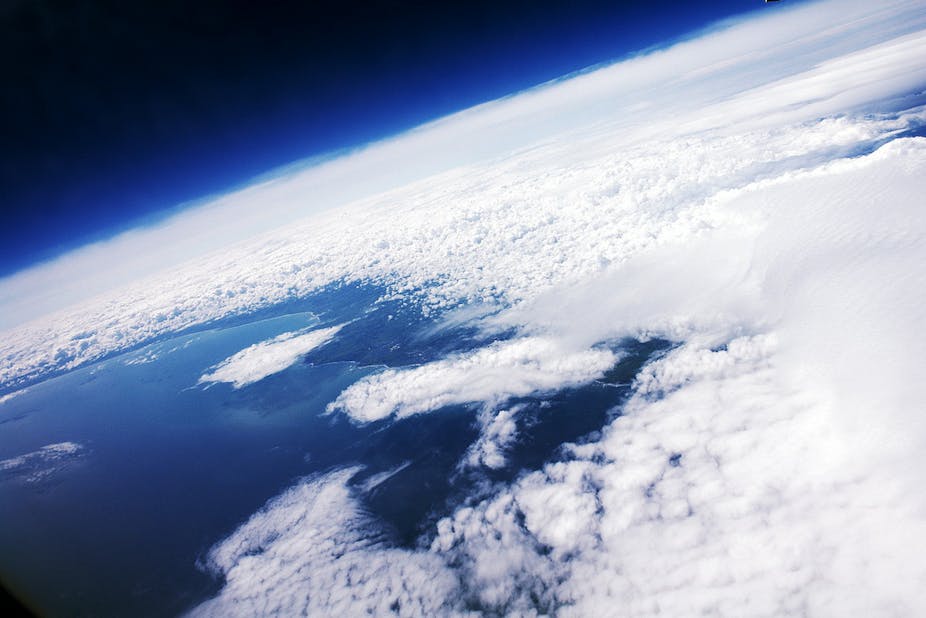Speaking on the ABC, Professor Hans Joachim Schellnhuber, chief climate science advisor of the German Government, made a point even the least-informed should be able to understand.
“Our body temperature is about 37 degrees. If you increase it by two degrees, 39, you have fever. If you add four degrees, it is 41 – you are dead, more or less.”
When in the early 80s “economic rationalism” assumed an overarching value in western societies, a rhetoric question arose: what is the price of the Earth?
The question is no longer rhetoric. The spectacle of people haggling over dollars vis-à-vis the future of the Earth’s atmosphere-ocean system is a Faustian bargain not dreamt by science fiction writers. It hardly conceals the increasing extraction of every available carbon source from the ground, including coal, oil, oil shale, tar sand, gas and coal seam gas.
Global emission reduction targets, ranging from 40% relative to 1990 by Germany, to 5% relative to 2000 in Australia, would still allow mean global temperatures to rise by three or four degrees Celsius later in the century.
This will drive a major shift in climate zones, disrupt river flow, raise sea levels on the scale of meters and lead to heat waves, fires and storms.
Climate science focuses on the non-linear nature of climate change where, once critical temperature thresholds are crossed, warming is amplified by feedbacks from melting ice, opening water surfaces, release of methane from permafrost and from polar sediments, leading to tipping points.
According to NASA’s projections, “Goals to limit human-made warming to two degrees Celsius and CO₂ to 450 parts per million are not sufficient – they are prescriptions for disaster”
“Rapid reduction of fossil fuel emissions is required for humanity to succeed in preserving a planet resembling the one on which civilization developed.”
The disruption of the carbon and oxygen cycles, which act as the “lungs of the biosphere” is raising CO₂ and other greenhouse gases to levels close to that of 16 million years ago and is increasing at a rate unprecedented in geological history (with the exception of global volcanic and asteroid impact events which led to mass extinction of species).
This extreme rate retards the ability of species to adapt to fast changing environments, threatening a mass extinction of species, not least in the oceans.
A fundamental change in the global climate regime ensues in a permanent state of El-Niño, such as existed before three million years ago. At that stage the decline of polar-sourced cold currents resulted in a stable equatorial warm pool and the demise of the La-Niña phase. An intensification of the hydrological cycle leads to extreme weather events, increasing around the world.
An acceleration in the rate of sea level rise is projected by an increase in the melt rate of Greenland and Antarctic ice sheets.
According to lead IPCC authors, the “climate change that takes place due to increases in carbon dioxide concentration is largely irreversible for 1000 years after emissions stop.”
A dumbing down of the political and media discussion to the dollar price of carbon reflects years of cover-up on the scientific measurements and direct observations of climate change around the world.
An irrelevant discourse ensues between those willing to undertake symbolic action and those who deny the science altogether.
Had the science been afforded a correct publicity in the Australian media, the current political and economic fury would be seen in their true perspective and the real meaning of a world three to four degrees warmer would be understood.
According to Schellnhuber, “We are simply talking about the very life support system of this planet.”
What is required is what has never been done before in human history – a plan for the future.
The window of opportunity to turn the climate trend around will close unless a coordinated global effort is made to reduce emissions and a technological breakthrough is made to draw down atmospheric CO₂.

